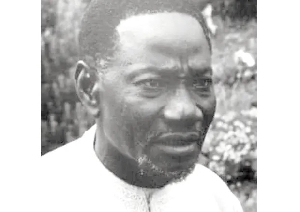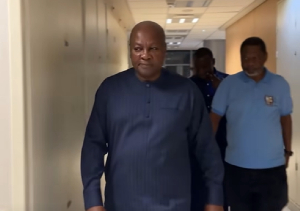In the tapestry woven with the rich threads of Ghana's political and socio-economic history, few figures stand out as brilliantly as Tolon Naa Alhaji Yakubu Alhassan Tali (1916-1986).
A paramount chief, a revered politician, and a founding member of the Northern People's Party, his life and legacy resonate with tales of resilience, leadership, and unwavering unity.
Born into the esteemed lineages of Tolon and Kumbungu, Yakubu Tali's early years were marked by a determined pursuit of education amidst a system that often restricted opportunities for those in Northern Ghana. Despite these hurdles, his exceptional intellect and athletic prowess shone through, paving the way for him to become the first northerner to attend the prestigious Achimota College.
It was on these hallowed grounds, alongside future luminaries like Kwame Nkrumah and Edward Akufo-Addo, that the seeds of his political aspirations were sown [https://en.wikipedia.org/wiki/Achimota_School](https://en.wikipedia.org/wiki/Achimota_School).
Upon returning to Northern Ghana, Yakubu Tali embarked on a transformative journey. His work as a teacher and translator bridged crucial gaps between the colonial administration and the local communities, laying the groundwork for his future political endeavors. His leadership in the Northern Territories Council and his contributions to the Coussey Constitutional Council were instrumental in shaping the path towards Ghanaian independence [https://en.wikipedia.org/wiki/Coussey_Committee](https://en.wikipedia.org/wiki/Coussey_Committee).
The formation of the Northern People's Party in 1954, under his astute leadership, marked a pivotal moment in mobilizing the North politically. As a Member of Parliament, Yakubu Tali's eloquence earned him the revered title "Golden Voice of the North," a testament to his persuasive and impactful oratory.
His commitment to Ghana's national interests extended far beyond the borders of the nation. His diplomatic service, particularly during his tenure as Ghana's High Commissioner to Nigeria and ambassador to Yugoslavia and Sierra Leone, exemplified his adeptness at navigating the complexities of international relations. Even amidst political turmoil, his unwavering integrity and diplomatic acumen garnered respect across the political spectrum, ensuring continuity and stability in Ghana's foreign relations.
Beyond his political and diplomatic achievements, Yakubu Tali's personal life mirrored his deep-seated beliefs in peace, unity, and spiritual harmony. His active engagement with diverse faith communities underscored his vision of a society where different beliefs could coexist and enrich the collective social fabric.
Tolon Naa Yakubu Tali's legacy transcends the offices he held or the policies he influenced. It lies in his unwavering faith in the power of education, his unwavering commitment to bridging divides, and his unwavering adherence to principles of integrity and service. His life's work continues to serve as a beacon for leadership in Ghana and beyond, reminding us of the profound impact a single individual can have on shaping a nation's destiny.
As we reflect on his contributions, we are reminded of the immense importance of preserving such histories accurately, not only to honor those who have paved the way but also to inspire future generations to continue the pursuit of unity, peace, and progress. Tolon Naa Yakubu Tali's story serves as a testament to the enduring value of visionary leadership and the transformative power of dedicated public service.
Opinions of Tuesday, 5 March 2024
Columnist: Abdul Ganiyu Alhassan















